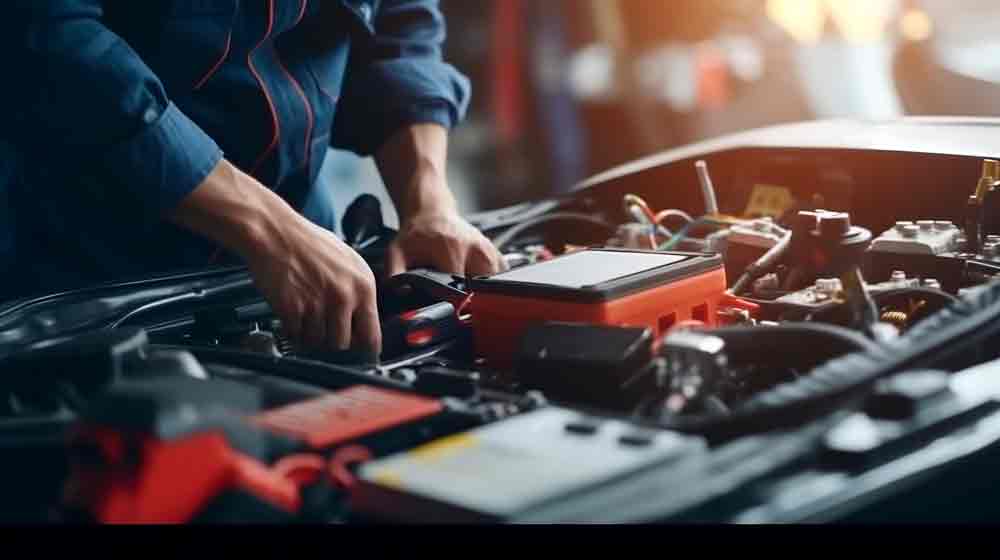The Battery reconditioning is a process that can breathe new life into worn-out batteries, including lead-acid batteries. As an engineer working in lead-acid battery recycling, understanding the value of a rotary furnace and its tilting capabilities is essential. In this article, we will explore the concept of reconditioning lead acid batteries, its benefits, and how a rotary furnace can play a crucial role in the recycling process.
Battery reconditioning is the art of restoring a battery to its original, like-new condition. It can be applied to various types of batteries, including lead-acid, nickel-cadmium, and lithium-ion batteries. The process involves a series of steps, including cleaning the battery cells, fully charging and discharging the battery, and finally, recharging it to its maximum capacity. By following these steps, one can significantly extend the lifespan of a lead acid battery.
The Importance of Reconditioning Lead Acid Batteries
Reconditioning lead acid batteries offers several advantages. Firstly, it can prolong the life of the battery itself. Over time, batteries experience a decrease in capacity and power due to cell damage and degradation. By reconditioning the battery, the cells can be restored to their original condition, allowing the battery to deliver peak performance once again.
Additionally, reconditioning can improve the overall performance of lead acid batteries. When a battery is initially manufactured, its cells are filled with energy, enabling them to deliver maximum power. However, as the battery ages, the cells deteriorate, resulting in a decrease in capacity. Reconditioning helps reverse this process, revitalizing the cells and enabling the battery to regain its original performance capabilities.
OUR RECYCLING PROCESS ARE BUILT TO REACH THE HIGHEST QUALITY LEVEL OF EACH RECYCLED ELEMENT (> 90%) TO EXTEND THE LIFESPAN OF NEW BATTERIES PRODUCED WITH SECONDARY ELEMENTS, WITH REDUCED BATTERY MAINTENANCE ISSUES, BATTERY MANUFACTURERS WILL ENJOY THE PERFORMANCE WITH A GREEN HINT!
– GME R&D Performance Team –
The Benefits of Battery Reconditioning
Battery reconditioning offers numerous benefits for both individuals and businesses alike. For individuals, it presents a cost-saving opportunity by extending the lifespan of their existing batteries. Instead of constantly replacing batteries, reconditioning allows users to maximize the value of their investment and save money in the long run.
For businesses, reconditioning can lead to significant cost reductions. By prolonging the life of batteries used in various applications, businesses can lower their operating costs and minimize the need for frequent battery replacements. This is particularly beneficial in industries that heavily rely on lead acid batteries, such as renewable energy systems, telecommunications, and automotive sectors.
If you’re wondering how to recondition a lead-acid battery at home, the process generally involves the following steps:
- cleaning the battery cells,
- verify the voltage,
- fully charging and discharging the battery,
- and then recharging it to 100%.
- Rehydrating Dried Electrolytes
There are also lead-acid battery reconditioners available in the market that automate this process and make it more convenient for users.
Moreover, the practice of battery reconditioning contributes to environmental sustainability. By extending the life of batteries, we reduce the amount of electronic waste generated and minimize the environmental impact associated with battery production and disposal. It’s a step towards a greener future and a more sustainable approach to energy storage.
Battery reconditioning, especially for lead-acid batteries, is a valuable practice that brings multiple benefits. It extends the lifespan of batteries, improves their performance, saves money for individuals and businesses, and helps reduce electronic waste and environmental pollution. By embracing battery reconditioning, we can make a positive impact on both our wallets and the planet.
Comments are closed.

